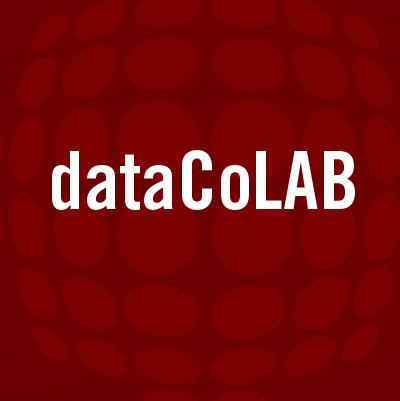
The Data Collaborations Lab (dataCoLAB) celebrated its first year of operations in September 2020. Driven by goals to build the strength of the research community and nurture a healthy data ecosystem, the University Libraries initiated the dataCoLAB in late 2019 with a vision to foster connections within the wider research community and assist collaborations between data producers and data scientists.
The program's unique role is to facilitate partnership between researchers with datasets and consultants with the data expertise needed to most effectively engage with the data. Participants who seek support with their research data sets can benefit from expert insight on how to organize, visualize, and analyze their data. Individuals with data expertise can gain valuable practice working with diverse, real-world datasets, and benefit from documented experience serving as consultants or collaborators.
The Data Collaborations Lab welcomes a wide range of participants from the Pittsburgh area who come from both within and beyond the Carnegie Mellon research community. Collaborations during the program’s first year have included researchers from across multiple disciplines, who are pursuing a variety of research and data analysis goals.
In one collaboration, a researcher from CMU’s Materials Sciences department came with the goal of text mining journal articles and open source documents to build a knowledge base on superalloys. The researcher was paired with a consultant from Heinz College who brought expertise in both materials science and data analysis. Another project centered on human movement, and predicting individual subject outcomes to therapies based on demographic data, with the ultimate objective of creating a predictive machine learning model. A consultant from the public policy field with data analysis expertise was able to partner up to provide insight and input on the project. Recent projects have included research from the field of architecture, in one instance studying subjects’ perception of daylight, and, in another, emotional responses to interior design of office spaces.
Feedback from participants has been positive and encouraging. In particular, consultants with data expertise have reported their satisfaction about the opportunity to help others, learn, and get documented hands-on experience. Researchers with data sets have enjoyed the responsiveness and feedback from the partnerships and report that the input is elevating their approach and helping research progress more rapidly.
By creating a supported context for these collaborations, dataCoLAB has been able to foster partnerships through the initial uncertainty that is natural to new group efforts. Another key contribution from dataCoLAB has been guidance on tools and platforms that help participants work together, share materials, and document projects.
As dataCoLAB enters its second year, plans include outreach to grow the program and create new prospects for participants. A virtual Open House is planned for October 28. The Open House will provide an overview of what dataCoLAB has achieved so far, and will create an interactive space for people interested in the program and its potential to learn more and connect with each other.
